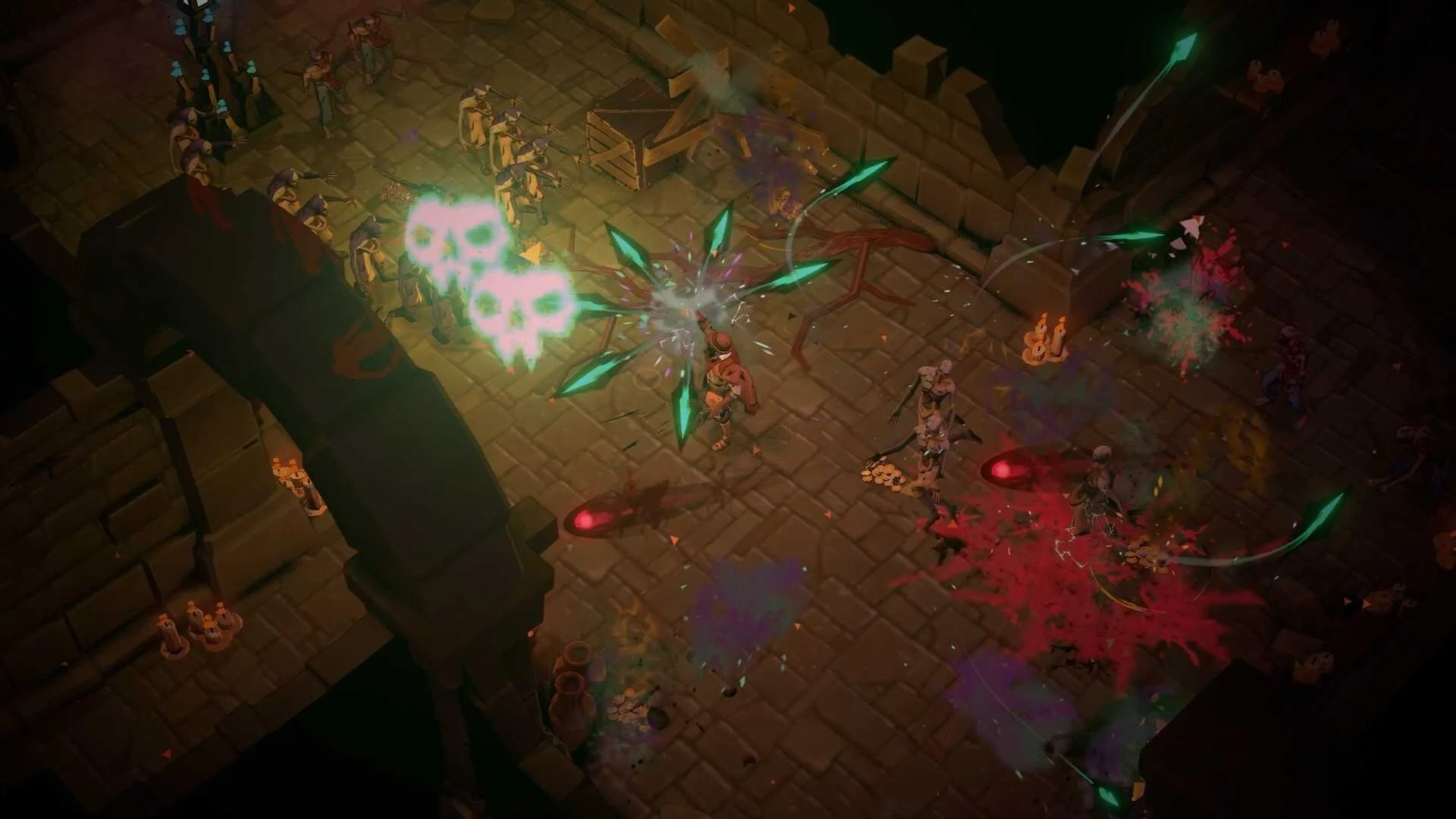Hell Clock Review: The Highest High, The Longest Hangover
Whoever had the idea to slam the DNA of Hades and Path of Exile together in a particle accelerator is an evil, beautiful genius. The resulting explosion, Hell Clock, is one of the most potent forms of digital heroin I’ve encountered in years. The combat is fluid, the buildcrafting is sublime, and the power curve can rocket you to godhood in a storm of screen-clearing glory. For the first few hours, I was completely hooked. Then, the high wore off, and I was left with a soul-crushing hangover of terrible pacing and some of the most baffling endgame design choices I’ve ever seen.
The Sweetest Poison
Let’s start with the good stuff, because when Hell Clock is good, it’s fucking brilliant. The game fuses the run-based structure of a roguelite with the complex, synergistic loot systems of an ARPG, and the result is intoxicating. The core loop is a masterclass in controlled chaos.
Buildcrafting Bliss
This is where the magic happens. The sheer variety of builds you can stumble into is staggering. In one run, I was a lightning-fast dervish, teleporting through hordes with dual knives. In the next, I was a bona fide summoner, watching in delight as my magically enhanced Catholic Guards suddenly started firing split-shot projectiles that annihilated everything on screen while I just bonked enemies on the head with a giant bell. Discovering how different Relics and Blessings interact to create these absurdly powerful engines of destruction is the kind of theorycrafting joy that ARPG fans live for.
A Righteous Fury
The game’s unique setting, based on the real-life 19th-century conflict in Canudos, Brazil, is a refreshing change of pace from the usual fantasy or sci-fi tropes. It’s all brought to life with passionate, emotional Brazilian Portuguese voice acting that sells the weight of the historical struggle. When your build finally clicks and you’re effortlessly dancing through enemies, the combat feels fluid, impactful, and deeply satisfying.
Hitting the Brick Wall
Unfortunately, that incredible power trip eventually slams headfirst into a brick wall made of pure, unadulterated grind. The game's progression is plagued by some of the worst pacing I’ve ever experienced.
The Pacing is a Goddamn Joke
Here’s a typical Hell Clock experience: you’ll spend a few runs absolutely demolishing Act 1, feeling like a certified badass. You’ll hit the first boss of Act 2 and suddenly find yourself doing approximately zero damage. Your abilities, which were just vaporizing elites, now barely tickle the health bar of a common enemy. The game then expects you to spend the next several hours grinding the same 30-minute chunk of Act 1 over and over, praying to the RNG gods for the specific combination of relics that will let you overcome this gargantuan DPS check. It’s a tedious, fun-destroying slog that completely kills the game's momentum.
The Endgame That Isn't
After you finally beat the campaign, you're "rewarded" with the Ascension endgame system, which is arguably the worst part of the game. Instead of letting you continue to build on your powerful character like a normal ARPG, it wipes all your gear and forces you to restart the entire campaign from scratch with punishing negative modifiers and a strict limit on how many runs you can attempt. It completely misunderstands the power fantasy that makes the genre so compelling and feels like a cheap, artificial way to extend playtime without adding any meaningful new content.
A Few Missing Gears
On top of the major structural problems, the game is missing some basic quality-of-life features. The Reliquary, your stash for collected items, has no search bar or filter system, forcing you to manually flip through pages of icons to find what you need—a cardinal sin for any loot-based game. Many of the game’s core mechanics are also poorly explained, forcing a lot of tedious trial and error to figure out how things actually work.
The Verdict
I am at war with this game. The core combat and buildcrafting are so damn good that they could form the foundation of an all-time great in the genre. But the experience is crippled by atrocious pacing issues, a fundamentally unrewarding endgame, and a frustrating lack of polish. Hell Clock is a game of extreme highs and soul-crushing lows. There’s a masterpiece buried in here somewhere, but the developers need to do some serious excavation to dig it out.
Score: 7.7/10 A game that lets you build the perfect engine, then forces you to drive it exclusively in rush-hour traffic.
We at NLM received a key for this game for free, this however didn't impact our review in any way.

